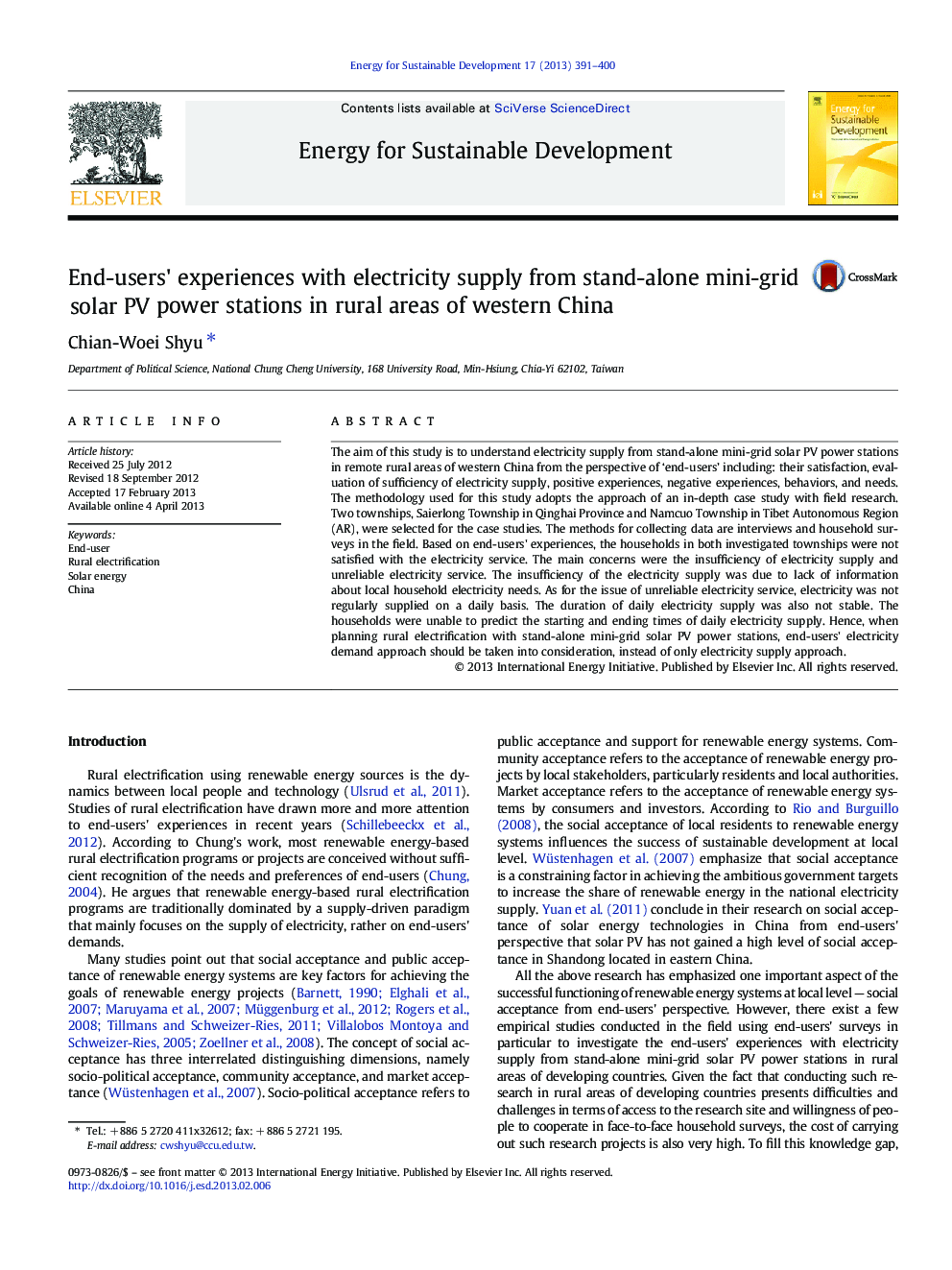| Article ID | Journal | Published Year | Pages | File Type |
|---|---|---|---|---|
| 1046976 | Energy for Sustainable Development | 2013 | 10 Pages |
•The end-users’ satisfaction is low.•Insufficient electricity supply and unreliable services are the critical issues.•End-users’ behaviors affect electricity supply, such as use of incandescent lamps.•Engagement of local community is a key factor for the success of the program.
The aim of this study is to understand electricity supply from stand-alone mini-grid solar PV power stations in remote rural areas of western China from the perspective of ‘end-users’ including: their satisfaction, evaluation of sufficiency of electricity supply, positive experiences, negative experiences, behaviors, and needs. The methodology used for this study adopts the approach of an in-depth case study with field research. Two townships, Saierlong Township in Qinghai Province and Namcuo Township in Tibet Autonomous Region (AR), were selected for the case studies. The methods for collecting data are interviews and household surveys in the field. Based on end-users' experiences, the households in both investigated townships were not satisfied with the electricity service. The main concerns were the insufficiency of electricity supply and unreliable electricity service. The insufficiency of the electricity supply was due to lack of information about local household electricity needs. As for the issue of unreliable electricity service, electricity was not regularly supplied on a daily basis. The duration of daily electricity supply was also not stable. The households were unable to predict the starting and ending times of daily electricity supply. Hence, when planning rural electrification with stand-alone mini-grid solar PV power stations, end-users' electricity demand approach should be taken into consideration, instead of only electricity supply approach.
